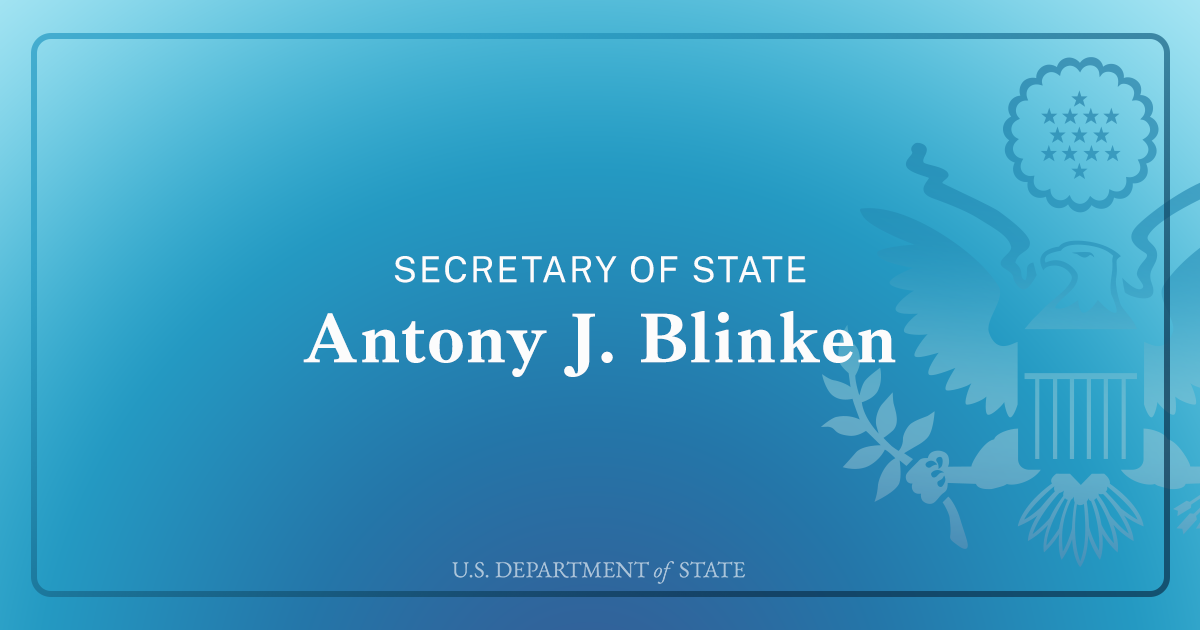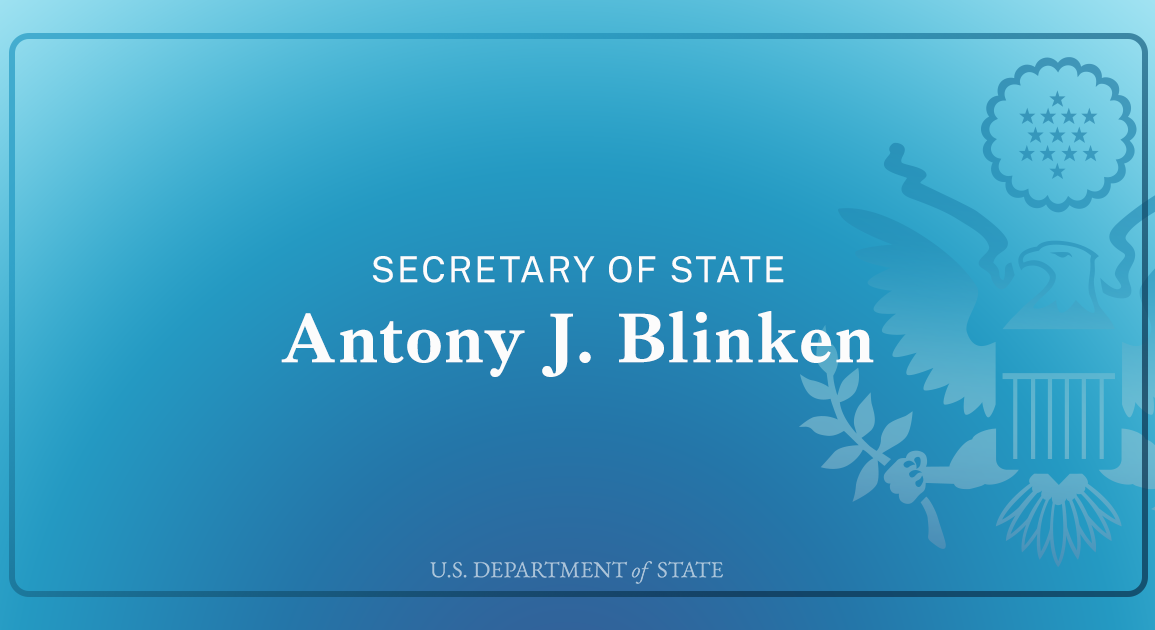
QUESTION: And I am here, Robin, with the Secretary of State Antony Blinken. He’s in New York today to chair a meeting of the United Nations Security Council – at the top of the agenda Russia’s war on Ukraine, the impact on the world food supply. Welcome, Mr. Secretary.
SECRETARY BLINKEN: Thanks, George.
QUESTION: Let’s start with that right now. We’ve seen this collapse of the grain deal —
SECRETARY BLINKEN: Right.
QUESTION: — where Russia was allowing Ukraine to export its grain. We’re now seeing attacks on Ukraine’s grain supply, and that has ripple effects around the world.
SECRETARY BLINKEN: It does, George. Ukraine has been one of the biggest providers of grains, of wheat, corn, to the world for years. When Russia invaded, they blockaded Ukraine’s ports, weren’t allowing these food products to get out. A deal was struck by the United Nations and by Türkiye about a year ago to allow those food products to get out. During that year, about 30 million tons of food products got out. It’s the equivalent of 18 billion loaves of bread. Russia tore up that deal a couple weeks ago.
That means that countries that need the food most and who were getting it – more than half this food was going to developing countries – are not getting it. Everyone is being affected by rising prices. So the world is looking to this, and particularly countries throughout Africa are looking to this and looking to Russia to get back into this agreement, to get back into this deal.
There’s a bigger picture here, though. We’ve got about 260 million people around the world who are acutely food insecure. It’s a product of climate change, of COVID a couple of years ago, and also conflict. And what that does is – this food insecurity – it drives more war, it drives forced migration, it stunts growth – economic growth, physical growth. And at the same time, we have countries like Russia that are using food as a weapon of war.
So we’re bringing countries today at the United Nations. We’ve got 91 countries to date signed up to a commitment not to use food as a weapon of war. And at the same time, we’re putting a spotlight on what Russia is doing in Ukraine.
QUESTION: Are you going to speak directly to the Russian representatives? Is there any chance of putting this deal back together?
SECRETARY BLINKEN: Look, we hope so. But more than the fact we hope so is the fact that countries around the world, including the countries most directly affected, want to see this happen. There was just a summit between Russia and African countries. Half the African leaders didn’t show up, which tells you something. But the ones that did made it very clear to Vladimir Putin that they wanted this deal back on. Kenya said that Russia tearing up this deal was a stab in the back.
So I think Russia is hearing a demand signal from countries around the world that they need to stop using food as a weapon of war in Ukraine.
QUESTION: Earlier in the program, we heard from the family of Travis King.
SECRETARY BLINKEN: Yeah.
QUESTION: Of course, he’s the American who went over into North Korea. What more do we know about his condition and efforts to bring him home?
SECRETARY BLINKEN: George, I wish we did know more. We’re actually trying to learn more about his whereabouts and his well-being, and we simply don’t have that information. Just yesterday, finally, the North Koreans acknowledged that they’ve – understand we’re asking these questions. They haven’t given us responses. We’re trying by every reasonable means possible just to get that basic information, and then to see what we can do about bringing him home.
QUESTION: Well, right now we know basically nothing.
SECRETARY BLINKEN: That’s correct. We don’t.
QUESTION: Finally, before you go, I know you stay out of politics, but you also talk a lot about democracy in the world. We’re going to face the situation today of former President Trump being arraigned in federal court in Washington, D.C., for trying to overturn the 2020 election. Are you hearing about that from our diplomatic counterparts, from our allies? Are they concerned about the state of American democracy?
SECRETARY BLINKEN: George, you’re right; I do stay out of politics. It’s not my job. But what I can tell you is this: One of the things that is a source of strength for us around the world is when we have challenges in our own democracy, we deal with them. We deal with them transparently, we deal with them openly. We don’t try to sweep them under the rug. We’re talking about it on TV. And that’s a very important distinguishing feature, because it allows us to say to other countries around the world that may have challenges we hope at the very least you’ll do the same thing; you’ll confront these challenges and work through them.
QUESTION: Mr. Secretary, thanks for your time this morning.
SECRETARY BLINKEN: Thanks, George.


